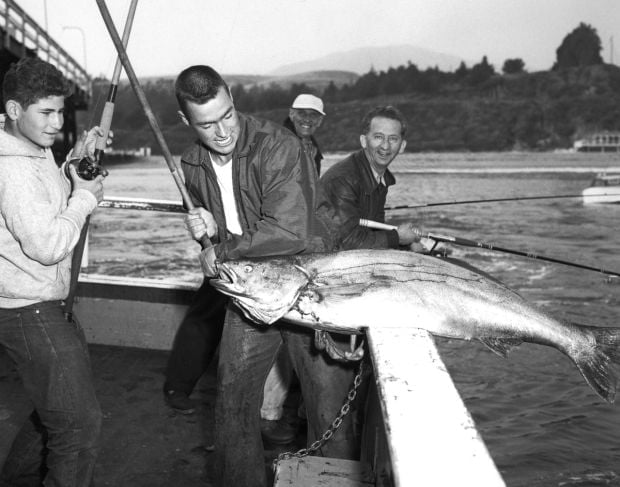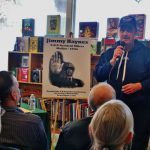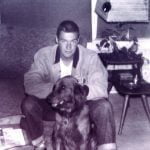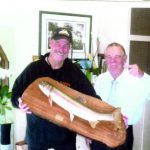Did you know that Malibu once had a resident California Highway Patrolman? Big steelhead trout could be caught by the dozen in Malibu Creek? Cattle roamed the Trancas and PCH area?
Before those memories are forgotten, longtime local resident Pete Haynes, 75, decided it was important for posterity to record them in his new book, “1950s Malibu: Growing up in Paradise.” The book recounts living in Malibu in the town’s earlier days.
“I knew these stories had to be told,” he said.
His new book captures the outdoorsy, anything-goes wild west feeling of the town from over 50 years ago.
Before publishing his book, Haynes discovered he had few photos or mementos from that time in his life, and began asking other Malibu “old-timers” if they had anything. Longtime resident Louis Busch let him review old aerial photos of Malibu, where Haynes was thrilled to discover a shot of his old home, which had been built in 1938—perhaps the only photo of the property in existence.
Another longtime resident, Rick Cavallieri, brought Haynes a 1951 phone book that listed his parents’ names, address and phone number.
When Haynes first moved to Malibu in 1949 at the age of 10, he attended Webster School and his family lived on a street consisting of six houses named “Malibu Heights” on what would now be the middle of the Ralph’s parking lot. They were just across the street from the “Malibu Movie Colony,” as it was called then.
He became friends with the son of actor James Dunn.
“I noticed a gold statue on their mantle, and it turned out to be his Oscar award for the movie ‘A Tree Grows in Brooklyn,’” he said.
Many years later, Dunn invited Haynes and his wife over for the Fourth of July, and after the fireworks were over, he “shot a handgun off over the ocean to celebrate,” Haynes said. “That’s my Fourth of July,” Dunn told Haynes.
“There were a lot of staunch alcoholics in Malibu [back then],” Haynes laughed.
Haynes’ father, Jimmy Haynes, was the town’s resident California Highway Patrolman (CHP) from 1948 to 1959, and a colorful character in his own right—from becoming one of the state’s first motorcycle cops to being friends with heavyweight champ Joe Louis. In 1951, Haynes received a citation for heroism for rescuing a woman who jumped off the Malibu Pier at night in heavy surf.
Jimmy Haynes also became friends with the owner of the gas station at PCH and Trancas—Andy Anderson from Santa Monica, who owned it from 1946 to 1953. As a patrolman, the elder Haynes investigated car accidents and would ask Anderson to tow “wrecked” cars into the gas station.
In the process of writing the book, Haynes got in touch with Anderson, now 102 years old and living in Utah. Anderson told Haynes, “I have a courtesy card from your dad back in 1950.” That card has now become one of Haynes’ most prized possessions of a bygone era—his dad’s CHP business card with a handwritten note on the back, asking any fellow officer to consider Anderson a “friend.”
Haynes said he and his best friends fished all the time in Malibu.
“Trancas Creek had monster steelhead trout, but it was fenced off … The area from Trancas to Encinal had been divided up into 160-acre homesteads.”
He used to sneak over the fence but was one day confronted and charged by a huge bull, but managed to hide behind an outhouse-size building in the middle of the property. The story plays out for a week—and it’s all in the book.
“I grew up on the Malibu Pier, for the most part, with the skippers who ran the three [deep sea fishing] boats, and Johnny Radar, the pier manager who lived in the tower at the end of the pier,” Haynes said. The pier’s owner, Bill Huber, hired him to sweep up and help in the bait shop for $5 a day.
The book’s 44 chapters tell entertaining stories of local characters, teenage shenanigans, fishing and surfing in the Malibu of yore, with many old-time photos. The book follows Haynes from the time he was 10 to his mid-20s, when he followed his father’s footsteps into the field of law enforcement, beginning a career that included winning a medal of valor and meeting almost every U.S. President.
The book is available at Bank of Books and various other Malibu retail outlets. All proceeds go to “Friends of Rollo,” a nonprofit group that takes kids fishing.





